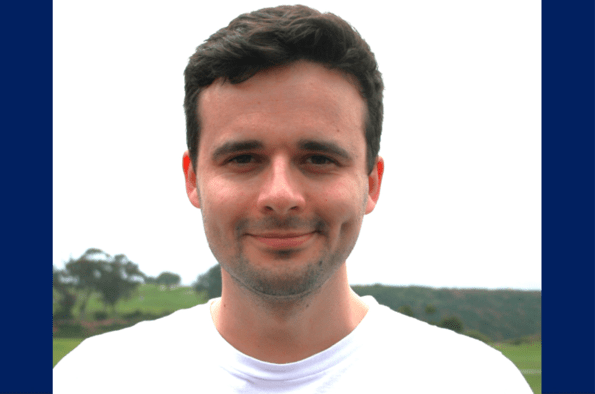
Chemistry graduate, Robert O’Neill, has been honored with the IUPAC-Solvay International Award for Young Chemists. This award recognizes outstanding early-career researchers for their contributions to the chemical sciences. Rob, who completed his PhD at the University of Liverpool, was recognized for his innovative work in mechanochemistry, a field studying how mechanical forces can drive chemical reactions.
He began his academic journey at Durham University, earning his MChem degree in 2018. His undergraduate research, under the supervision of Professor Paul McGonigal, focused on synthesizing redox-active cycloheptatrienes. For his PhD studies, he returned to Liverpool to work with Professor Roman Boulatov, applying mechanochemical techniques to polymer science. His doctoral research resulted in nine published papers in journals such as Nature Chemistry, Nature Communications, and the Journal of the American Chemical Society (J. Am. Chem. Soc.).
In April 2024, O’Neill joined Professor Jeffery Kelly's group at The Scripps Research Institute in San Diego, where he applies his expertise in chemical synthesis, physical measurements, and chemical computations to address biological problems related to human health. His long-term goal is to develop new diagnostic and therapeutic approaches using mechanochemical principles.
The IUPAC-Solvay International Award for Young Chemists is awarded for the best PhD theses in the chemical sciences, selected from a pool of 44 nominees from 19 countries. The winners receive a cash prize and the opportunity to present their research at the 2025 IUPAC conference in Kuala Lumpur, Malaysia. The selection committee was chaired by Professor Javier García-Martínez, IUPAC Past President, and included experienced chemists and a senior science advisor from Solvay.
O’Neill expressed his gratitude, stating, “I was thrilled to learn that my PhD thesis received the IUPAC-Solvay International Award for Young Chemists and afforded me the remarkable opportunity to present my research to an international audience at the next IUPAC conference in Malaysia. The award is a testament to the first-class scientific environment at Liverpool, the increasing prominence of my PhD research field of mechanochemistry, and to the outstanding mentoring from my PhD adviser, Prof. Roman Boulatov. Being recognized by the IUPAC among such a strong international field of candidates has greatly bolstered my confidence in pursuing an independent research career.”
O’Neill’s award-winning thesis explored mechanochemistry, specifically how mechanical force can induce chemical reactions. His research included studying stiff stilbene, a molecule that changes shape under mechanical force, to understand how polymers respond to changes in their environment. These findings have practical applications, such as designing new materials with unique properties and improving industrial processes like fracking.
Robert O’Neill’s recognition by IUPAC highlights the significance of his research in chemistry. As he continues his work at The Scripps Research Institute, the scientific community looks forward to his future contributions.